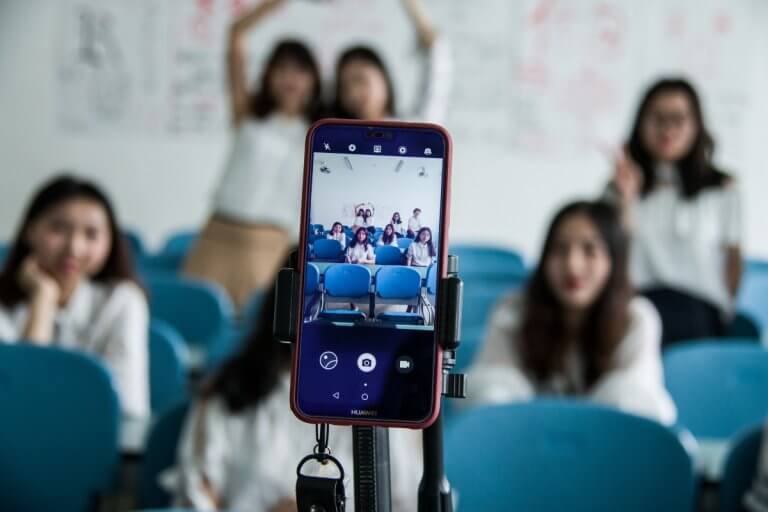
This is not the first time the debate around smartphones in schools has made its presence known, and it certainly won’t be the last.
Despite teachers’ concerns and school policies, the number of global users of smartphones has risen to 2.71 billion in 2019 and is expecting to surpass that figure in 2020.
Embracing the change, Woorana Park Primary School in Australia has set up a digital wonderland for students to experience. From enigma portals to code clubs, smartphones at this school aren’t shut away.
Featured on the television programme A Current Affair (ACA), the principal explains that “They’re estimating that 90 percent of jobs in the future will involve digital literacy,” so why ban smartphones?”
Making a fair point, this school’s principal acknowledges that young students need to be equipped with updated and relevant digital tools in order to embrace the new technologies of the future.
Instead of constricting their smartphone usage, this school integrates the devices into lessons as a way of enhancing education and taking teaching to the next level.
Typically, a teacher may be worried that a smartphone in the lesson will cause distraction or lead to classmates using precious learning time to text each other and watch internet videos.
Yet, with strict regulations and an engaging educational framework that intergrates EdTech, there’s no reason for this to happen.
Another educator who feels the ban of cellphones is pointless is Jamie Mitchell, a public-high school teacher for the Halton Distrct School Board in Canada.
“In 2008, I was newish to teaching, and starting a job as a math teacher at a local high school. I was told by other, more experienced teachers that if devices were being used in the classroom, I should confiscate them.
“Every day, I carried multiple devices down to the office. In a school of 1,000 students, I couldn’t imagine how many hours were devoted to tracking whose phone belonged to whom and how many times each student had their phones taken from them. And yet, phone use didn’t decrease,” he highlights.
“Near the end of my third year of teaching, I felt like I was spending all my time policing students instead of building positive relationships. I was chasing the behaviour and that was getting in the way of the actual learning.”

Are devices bad distractions? Source: Shutterstock
Many may attribute a strong sense of irony to this occurrence.
A school teacher that has devoted his attention towards hours and hours of tracking down students with phones may have outweighed the number of hours that learners actually spent on their cellphones in school.
However, there are still many schools that would disagree and would rather dedicate time to banning students cellphones to solve this digital distraction.
Smartphones have become a huge distraction in classrooms, making it impossible for students to learn effectively.
We conducted the most extensive education consultations in Ontario’s history, and 97% of respondents agree — it’s time to put the education of our students first. https://t.co/qeALUs3YOo
— Doug Ford (@fordnation) March 12, 2019
Plus, Dr Jim Taylor, author of Raising Generation Tech explains that, “There is a growing body of evidence – that is, yes, not fully validated and can be argued against – but pretty clear evidence that technology, social media, immediate access to the internet and smartphones are hurting kids’ ability to focus.”
And so the debate continues…







